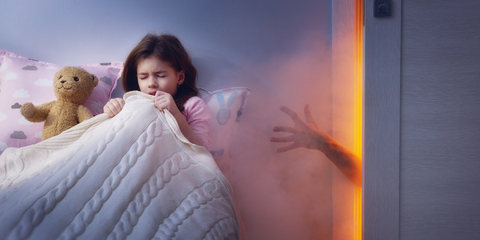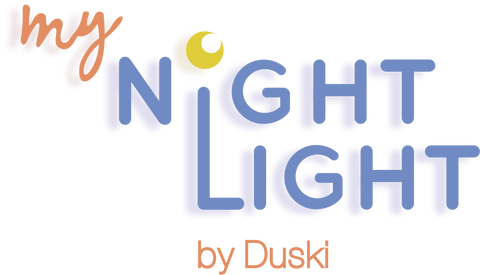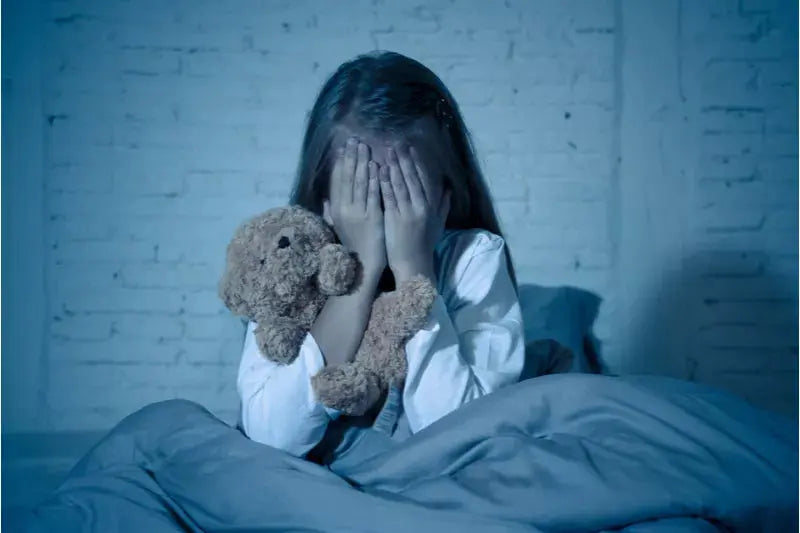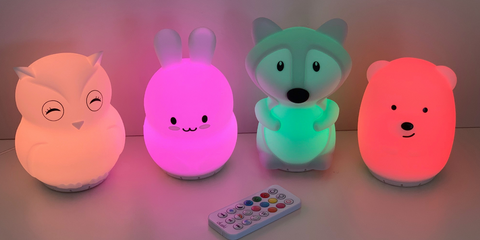Strategies to Overcome Children's Fear of the Dark
We’ve talked about children’s fear of the dark before, but this is such an ongoing problem for many of us, so we thought we’d revisit it. After all, sleep deprivation is no one’s friend!
In a study byMuris et al 2001children aged 4 -12 and their parents were interviewed about children's night time fears. Results showed that 73.3% of the children reported night time fears, these fears were common among 4 to 6 year olds, became even more frequent in 7 to 9 year olds and then remained relatively stable in 10 to 12 year-olds.
My personal experience is in line with the study, my 12 year old son seems to be ok at night now, but my 9 year old daughter is still afraid, although she is getting better.
Why do children fear the dark?
Kids have the most amazing imaginations and can develop a fear of pretty much anything. (my daughter is currently afraid when the home phone rings?!) A toddler or child in Kindy can be afraid of unfamiliar things or things out of their control. They don’t have the life experience to explain things, so they turn to the land of magic 4 year old logic, where monsters are real and dragons are living in the trees just outside the window.
As children get older, they fear what the darkness masks and the threats they are unable to spot. They also start to think about real life dangers, like intruders or being taken.

How can I help my child?
From my experience, the best way to get over fear or anxiety is to get more information about it and then problem solve. Here are other ways you can help:
- Their fear is real. Do not dismiss it or tell them to stop being silly. DO NOT make fun of them.
- Encourage them to talk and really listen, understand exactly what they are afraid of.
- If a toy or other object is casting a scary shadow, turn the light on, show them and then remove the object before turning the light off.
- If they are worried about an intruder, show them that the doors and windows are locked.
- Reassure them that they are safe
- Their fear could be about something else, like being separated from you or anxious about something. Talk to them honestly.
- Ask them for suggestions, what would make them feel safe?
- Remain calm!
Practical night time solutions
- Establish a bedtime routine, predictability helps reduce anxiety. This will help you to start the evening calm and relaxed.
- This sounds obvious but scary stories, television, social media are a no-go. Remember, children find different things scary, even the news could frighten them. (My 12 year old son finds that the news makes him anxious at times, especially when it is about war.)
- Put anight lightin their room. If they’re older get one that they can control. (this will help to lessen their fear.) Try to look for a light with a remote and a warm light source – no bright white or blue light. We recommendred for overnightuse as it is the only colour that doesn’t interfere with the sleepy hormone Melatonin.
- Be pro-active, look around their room for anything that may cast scary shadows and move it.
- Help them to choose a special protector to keep them safe at night – a cuddly friend perhaps or even ananimal shaped night light. Whatever works for your child.
- Try playing with glow products or animals in the dark to give them positive experiences in darkness.
- Relaxation techniques and sounds before sleep really work well
- Be consistent, do not give up. This could take a while.
Don’t forget, you are absolutely not going through this alone. Most of us have been there. And please do remember to applaud your little ones’ bravery as they progress, because they are incredibly brave at times, especially when their fears are so real to them.
If things are not getting better and you are worried in anyway, please contact your doctor.
*these are the opinions of the My Night Light team and are solutions we have found to work for our children. We are not medical professionals.




